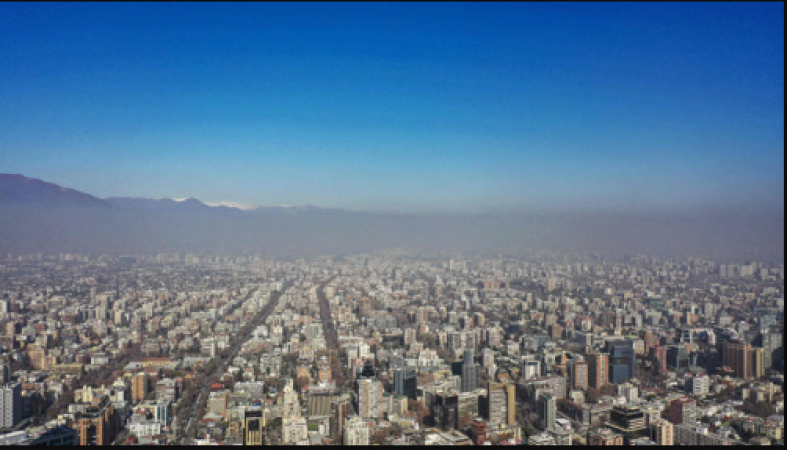
Santiago: Countries in the Southern Cone, such as Chile and Argentina, are also experiencing record heat, but they are doing so in the middle of what is supposed to be their winter, far from the extreme summer temperatures of the northern hemisphere.
Tuesday saw a temperature of 37 degrees Celsius (nearly 99 degrees Fahrenheit) in the central Chilean mountain town of Vicuna.According to Chilean meteorologist Cristobal Torres, "it's been more than 70 years since a temperature like this was recorded" in Vicuna.
The capital Santiago, located 450 kilometres (280 miles) to the south, also experienced unusually high temperatures on Wednesday, reaching 24C (75F), with similar values predicted for Thursday and Friday.
According to Argentina's National Meteorological Service, Buenos Aires experienced its highest August 1 temperature ever on Tuesday when the temperature surpassed 30C (86F). In Buenos Aires, August temperatures typically range from 18C (64F) to 9C (48F).
On Wednesday, temperatures of 30C (86F) were also recorded in a number of Uruguayan cities.
According to Chile's environment minister and climatologist Maisa Rojas, "What we are experiencing is the combination of two phenomena: a global warming trend due to climate change plus the El Nino phenomenon."
The global weather situation "should stop being so extreme when El Nino ends," she said.
Also Read: Poland's Startling Admission: Significant Errors in Communication with Ukraine Revealed
An El Nino event is characterised by elevated Pacific Ocean temperatures, which bring about heat waves, flooding, and precipitation in western South America.
In the upcoming days, temperatures in Santiago, Buenos Aires, and Montevideo are predicted to return to normal, but it is anticipated that more frequently occurring heat waves will be similar in nature.
"It is highly likely that Santiago's all-time heat record will be broken this year, which is incredibly unusual. Ten years ago, there were two heat waves each year; today, there are nine, according to climatologist Raul Cordero of the University of Santiago.
The mountains' snowpacks, which are essential to the city of Santiago, Chile's capital's water supply, are one of the most significant effects of the warm weather.
Also Read: Rebels Strike in Khyber: Three Pakistani Security Personnel Killed, Security Concerns Escalate
The effects of winter heat waves on glaciers and snow are catastrophic, according to Cordero. The effects of heat at the poles were another issue that Rojas raised.
She claimed on X, formerly known as Twitter, that the ice around the polar regions was at its lowest point. "Especially around Antarctica, where sea ice grows at this time of year to reach a maximum in September, it is at a historic minimum."